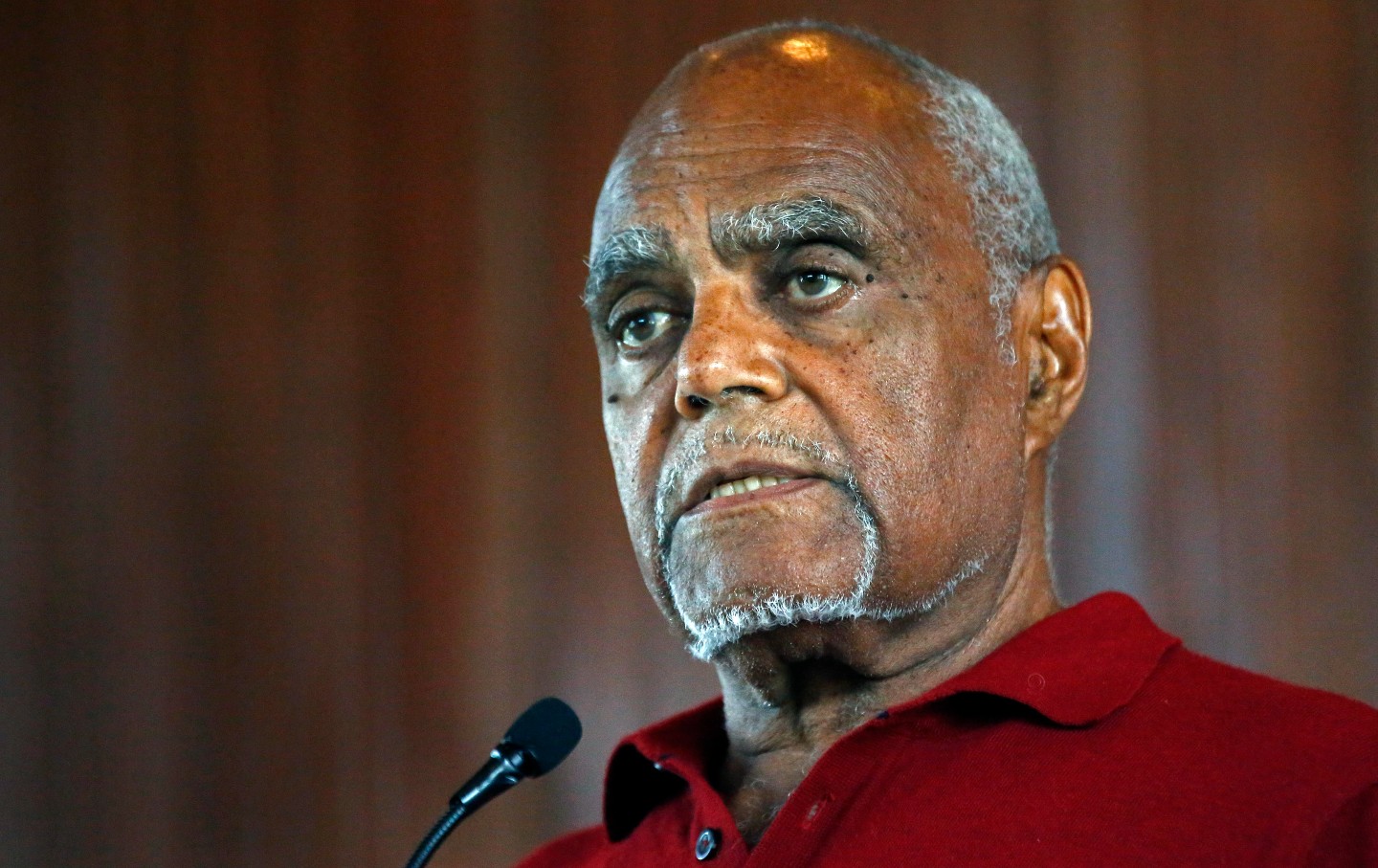State of Denial State of Denial
We live in interesting times. These days we can all pretty much acknowledge that race does not exist as a scientific construct; these days, we can all agree that racism is wron...
Sep 25, 2003 / Column / Patricia J. Williams
Educating for Privilege Educating for Privilege
As a law school dean, I was much taken with a statement from Justice Sandra Day O'Connor's landmark opinion in the University of Michigan case: "Law schools represent the train...
Sep 25, 2003 / Gene Nichol
Soul Man Soul Man
Pop music's eternal appeal can be found in one instance out of many: "This Magic Moment," a 1960 song by The Drifters.
Jul 31, 2003 / Books & the Arts / Armond White
The Legacy of Hanford The Legacy of Hanford
Washington continues to evade responsibility for forty-seven years of contamination.
Jul 31, 2003 / Feature / Robert Alvarez

Bob Moses Bob Moses
Late one night in October 1961, I flew from Atlanta to Jackson, Mississippi, with Bob Moses.
Jul 2, 2003 / Feature / Tom Hayden
Benjamin Mays Benjamin Mays
Benjamin Elijah Mays--devout Christian minister, uncompromising advocate for justice, career educator and longtime president of Morehouse College in Atlanta--was called the "Sc...
Jul 2, 2003 / Feature / Roger Wilkins
Diversity Over Justice Diversity Over Justice
Eric Foner was an expert witness in Grutter v. Bollinger, the University of Michigan law school case.
Jun 26, 2003 / Eric Foner
Affirmative Action Lives Affirmative Action Lives
In one of its most important cases in decades, the Supreme Court on June 23 upheld the prerogative of colleges and universities to give preferences to members of minority group...
Jun 26, 2003 / The Editors
Forgetting to Laugh Forgetting to Laugh
Of all the columns I've written, never have I gotten more mail than for the following sentence: "It will not matter that the Dixie Chicks play to full, cheering houses, while t...
May 22, 2003 / Column / Patricia J. Williams
Driving While Immigrant Driving While Immigrant
Emboldened by the "success" of its preventive war in Iraq, the Bush Administration appears to be expanding its preventive law-enforcement strategy at home.
Apr 24, 2003 / David Cole
